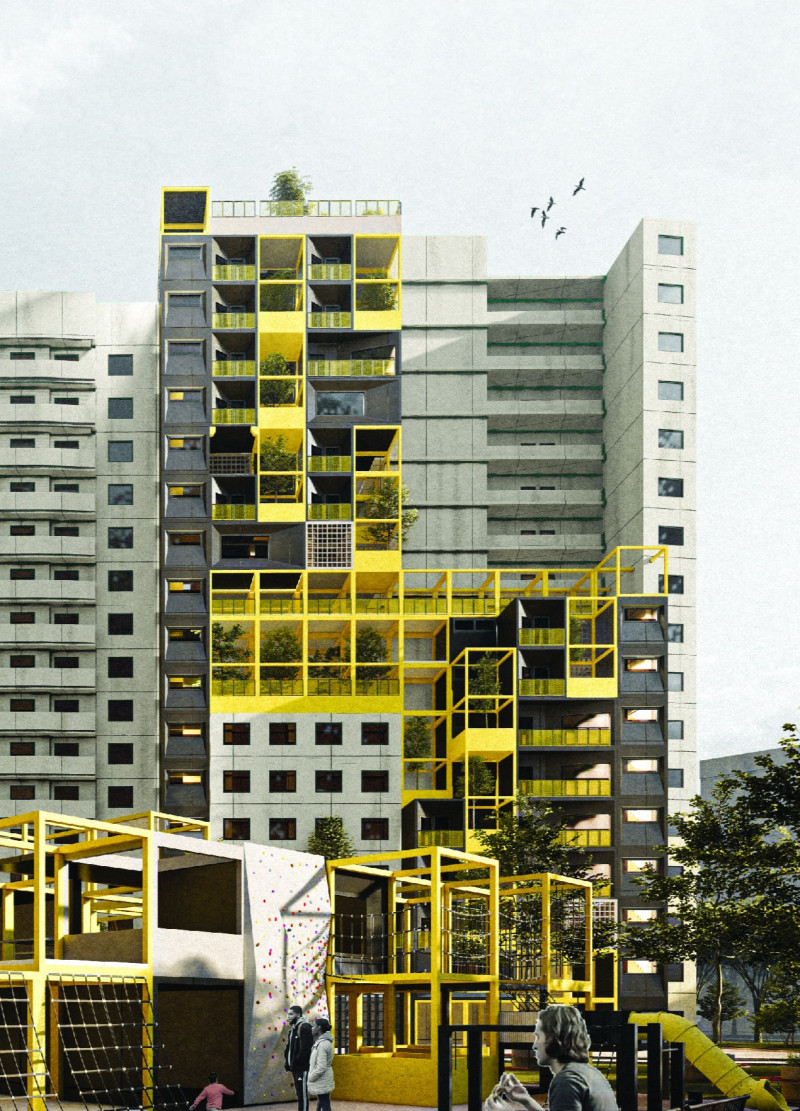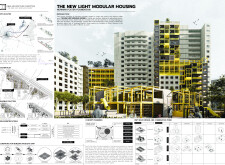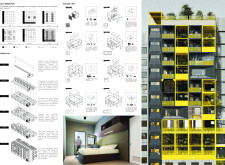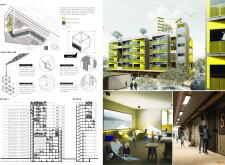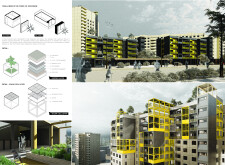5 key facts about this project
## Overview
The New Light Modular Housing project, developed by the Norman Foster Foundation, is situated in Saltika, an industrial city currently facing significant demographic shifts and housing demands. The initiative seeks to provide adaptable housing solutions that respond to the evolving needs of urban residents. By leveraging modular design principles, the project aims to foster communal living and enhance the urban landscape.
## Modular Configuration and Community Interaction
### Modular Framework
The design employs a modular system with prefabricated units that facilitate a range of configurations. This flexibility allows for residential units that can accommodate varying family sizes and lifestyles, promoting inclusion within the community. The strategic arrangement of these units is intended to optimize space while supporting efficient construction techniques and reducing onsite disruption.
### Communal Spaces
Central to the project is the emphasis on shared public areas, including gardens and designated communal zones designed to encourage social interactions among residents. These spaces aim to cultivate a sense of belonging, addressing the growing concern of urban isolation. The layout promotes accessibility and interaction, with amenities that facilitate community engagement, fostering a vibrant neighborhood atmosphere.
## Material Choice and Environmental Considerations
### Sustainable Materials
The project prioritizes sustainability through the selection of materials that balance aesthetic appeal with environmental performance. Concrete serves as the main structural element due to its durability, while steel is utilized for its strength in building connections. Large expanses of glass are incorporated to enhance natural lighting and create a connection with the surrounding environment. Green roofs and vertical gardens are integrated to promote biodiversity and improve thermal performance. Additionally, solar panels provide renewable energy, contributing to the project's self-sustaining objectives.
### Resilience and Long-term Viability
The modular design not only addresses immediate housing needs but also incorporates features aimed at resilience against urban challenges, such as flooding. By minimizing energy consumption through sustainable practices, the project contributes to a lower ecological footprint, reinforcing its long-term viability. Overall, the project exemplifies a balanced approach to modern urban housing, addressing social, ecological, and economic factors inherent in contemporary city living.


